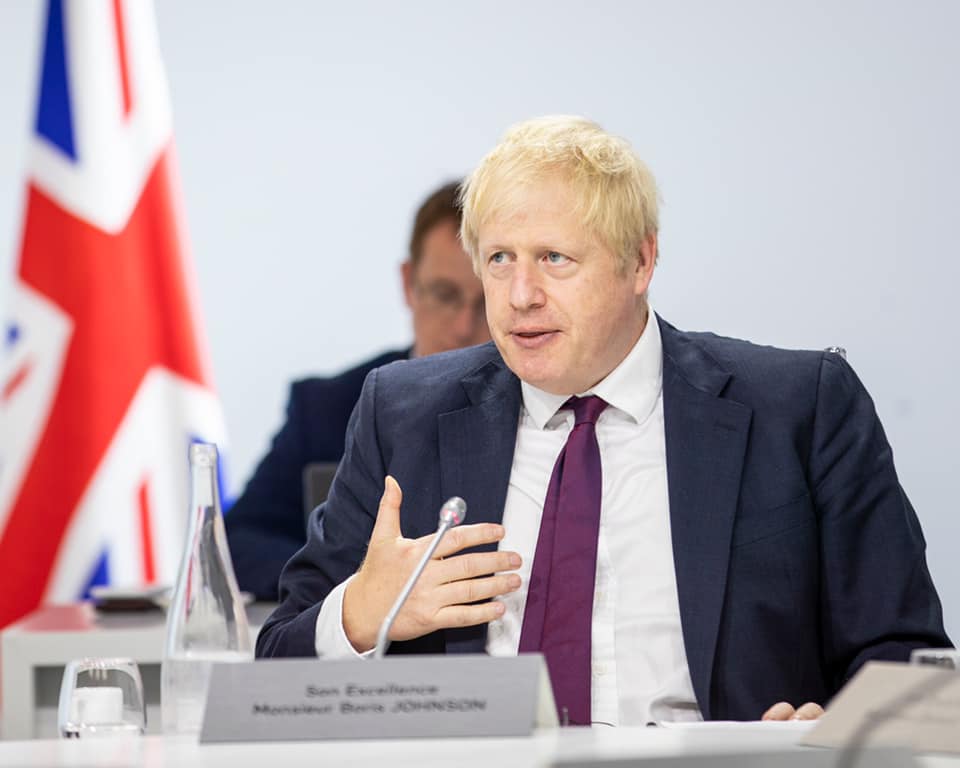
LONDON — British Prime Minister Boris Johnson would seek an extension to the Oct. 31 Brexit deadline if no withdrawal deal with the European Union is reached by mid-October, according to a document read aloud in a Scottish court Friday.
The government document quoted in Scotland’s Court of Session indicated Johnson intends to comply with a law Parliament passed this month that requires the prime minister to ask the EU for a postponement if no deal is in place by Oct. 19.
The court statement is at odds with Johnson’s continued insistence that he will not seek a Brexit extension under any circumstances. It is not clear how the government plans to resolve the difference between Johnson’s public stance and the position taken in court.
Lawyer Andrew Webster, representing the British government, said the court documents are a “clear statement” of what the prime minister would do.
He was arguing in a court case brought by activists seeking a court order that would force Johnson to seek an extension. Webster said there is no need for a court intervention since the government has made its intentions known.
“What we have is a clear statement on behalf of the Prime Minister and government as to what it will do in respect to the requirements of the 2019 Act,” he said, referring to the law passed last month instructing the government to seek a delay if no deal is reached.
He said the government still wants to leave the union on Oct. 31 and plans to do so.
Jo Maugham, a lawyer representing anti-Brexit activists in the case, tweeted that Johnson agreed in the document not to “frustrate” the law.
The British government submission also included the statement, “he (Johnson) will send a letter in the form set out,” the tweet stated.
“What we learned today is that the prime minister has promised the court, in his own name, that he will ask for an extension under the Benn Act if the conditions are satisfied,” Maugham told Sky News.
The segments read in court contradict Johnson’s repeated assertions on the crucial question of whether Britain, if unable to finalize a divorce deal with other EU countries by the end of the month, would leave the EU without an agreement.
Johnson has insisted he wouldn’t ask the EU for an extension under any circumstances, saying colorfully he would rather be dead in a ditch, and vowed he will take the U.K. out of the EU as scheduled on Oct. 31, with or without an agreement.
His office did not offer an immediate response to the government submission read in court. Johnson has not said anything indicating a change in his position.
Conservative Party lawmaker Steve Baker, leader of a prominent pro-Brexit group in Parliament, said the court statement “does not mean we will extend. It does not mean we will stay in the EU beyond Oct. 31. We will leave.”
Johnson’s willingness to embrace a “no-deal” Brexit has alarmed many lawmakers since the government’s own assessment of such a scenario warns of an economic slowdown, severe delays at British ports, and possible food and medicine shortages if “no deal” becomes a reality.
Talks between British and EU officials are continuing but key European leaders have already said they think the measures Johnson proposed this week fall far short of the concessions needed to forge a deal.
Irish Prime Minister Leo Varadkar, whose country would be among the most directly impacted by Brexit, said Friday he thinks EU members would contemplate delaying Brexit if the British government gives a good reason for seeking another extension.
“I think we would consider that,” he said.
Each of the 27 other EU nations would have to approve Britain’s request before an extension could be granted.
———
Associated Press writer Jan M. Olsen in Copenhagen contributed.